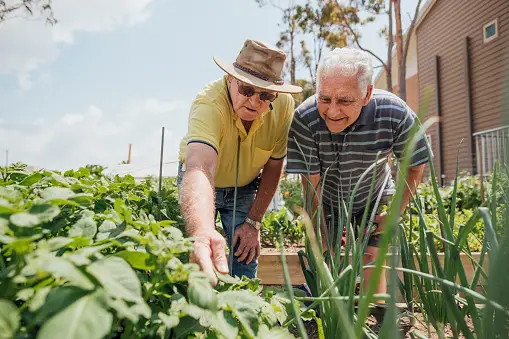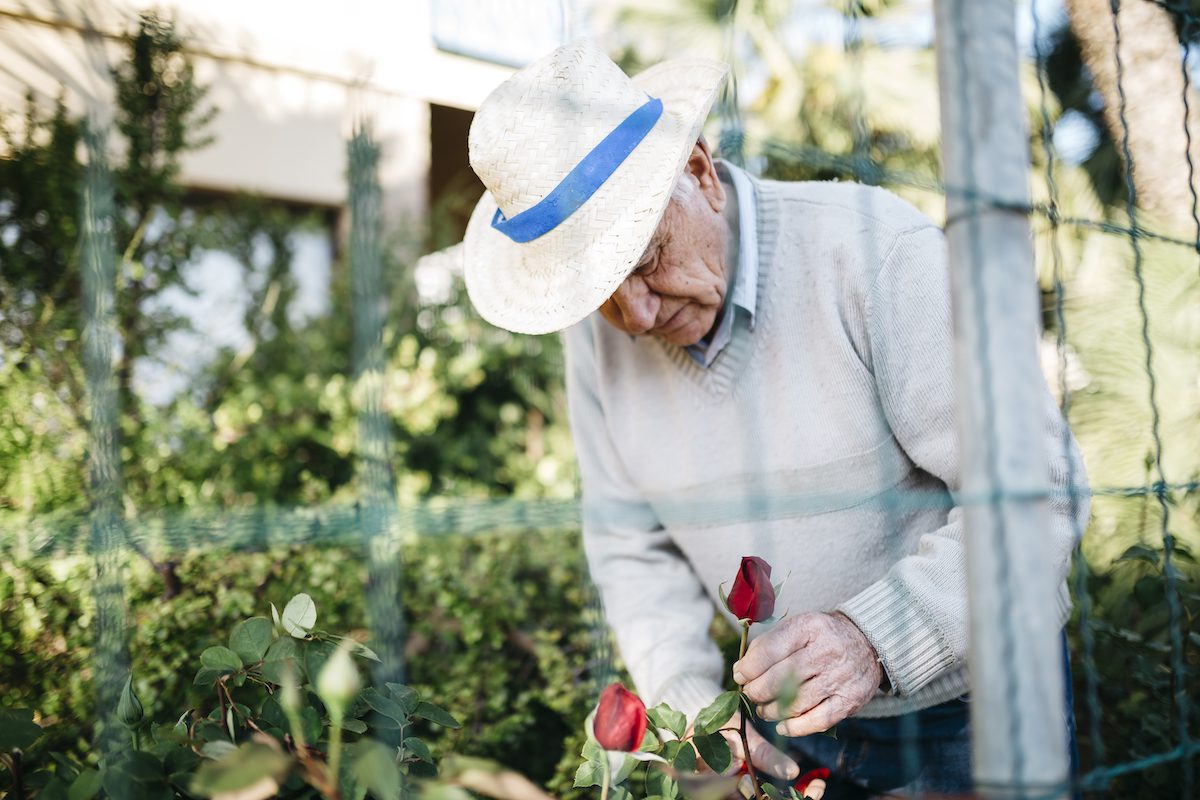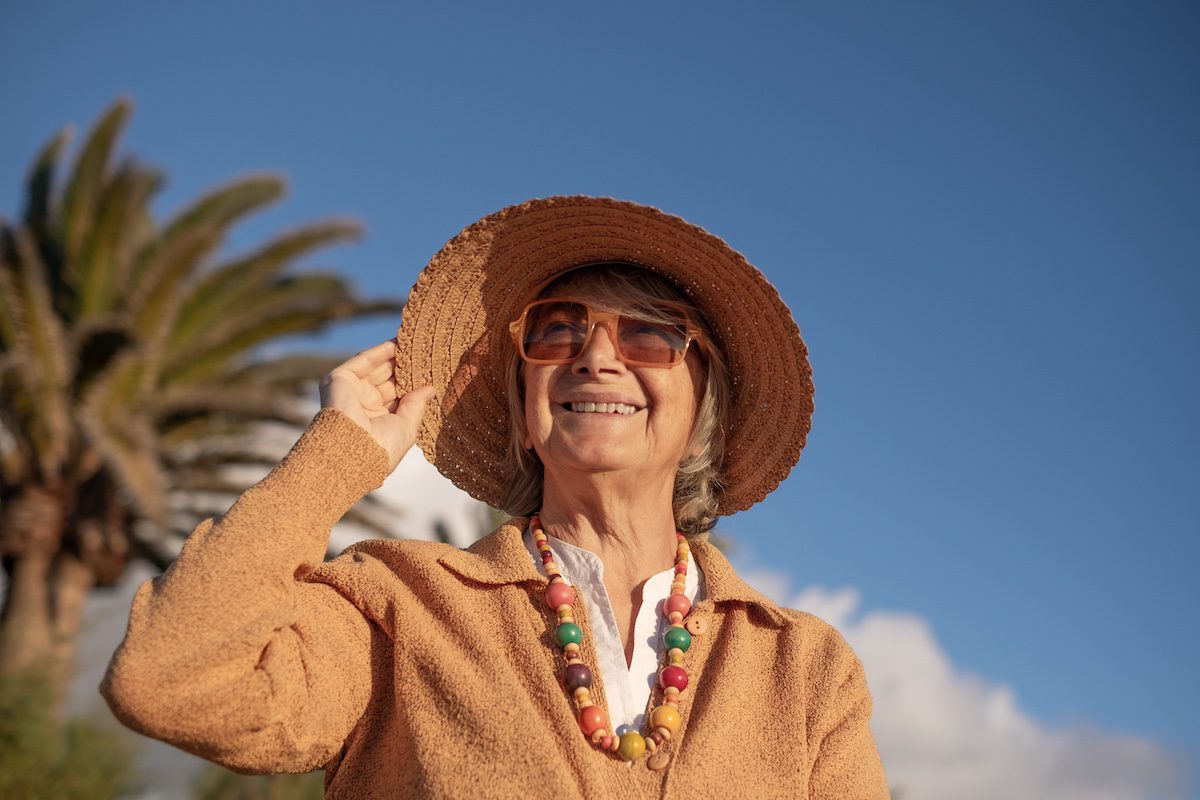Gardening is not just a hobby; it’s a therapeutic activity that can significantly benefit older adults. As people age, they often face various physical and mental challenges, but gardening offers a unique way to promote well-being, improve physical health, and provide a sense of purpose.
In this article, we will explore the myriad benefits of gardening for older adults, from reducing stress to enhancing cognitive function.
The Healing Power of Nature

For many older adults, spending time outdoors becomes increasingly rare. Gardening provides an opportunity to reconnect with nature, breathe in fresh air, and soak up some much-needed vitamin D.
This exposure to the natural world can have a profound impact on mental and emotional health.
Stress Reduction
Gardening is a proven stress reliever. The act of tending to plants, the soothing sounds of nature, and the tactile experience of digging in the soil can all help reduce stress levels.
Stress reduction is particularly important for older adults, as chronic stress can contribute to various health issues.
Physical Benefits of Gardening
There are many physical benefits of gardening for both old and young people alike. Some of these include:
Improved Physical Fitness
Gardening is a low-impact form of exercise that can help older adults stay physically active. Tasks like digging, weeding, and planting require strength and flexibility, promoting improved physical fitness.
Regular gardening can also help maintain a healthy weight and reduce the risk of chronic diseases.
Enhanced Mobility
Engaging in gardening activities that involve bending, reaching, and stretching can enhance mobility and flexibility in older adults.
It helps maintain joint function and reduces the risk of muscle and joint-related problems.
Cognitive Benefits of Gardening
Additionally, there are cognitive benefits to spending time in nature including:
Mental Stimulation
Gardening is a mentally stimulating activity that requires planning, problem-solving, and attention to detail.
These cognitive challenges can help keep the mind sharp and may even lower the risk of cognitive decline and dementia.
Sense of Accomplishment
Seeing the fruits of their labor bloom and flourish in the garden provides older adults with a sense of accomplishment. This can boost self-esteem and overall mental well-being.
Social Interaction and Community
Gardening can be a social activity, allowing older adults to connect with like-minded individuals in their community. Joining gardening clubs or participating in communal gardens fosters social engagement, reducing feelings of loneliness and isolation.
Sharing Knowledge
Older adults often have a wealth of gardening knowledge to share. By participating in gardening groups or mentoring younger gardeners, they can pass down their wisdom and leave a lasting legacy.
Potential Risks of Gardening for Elderly Individuals
While gardening offers numerous benefits for elderly individuals, it’s essential to acknowledge the potential risks associated with this activity.
One significant concern is the risk of physical strain and injury, as gardening tasks often involve bending, lifting, and repetitive movements that can strain muscles and joints.
Additionally, exposure to outdoor elements, such as extreme heat or cold, can pose health risks, especially for seniors with underlying medical conditions.
There’s also a risk of overexertion, which may lead to fatigue or falls. It’s crucial for elderly gardeners to take precautions, use ergonomic tools, and seek medical advice if they have health concerns to ensure a safe and enjoyable gardening experience.
Safety Tips for Elderly Individuals Who Garden
Safety is paramount when it comes to elderly individuals who enjoy gardening. To ensure a safe and enjoyable gardening experience, here are some essential safety tips tailored to their needs:
Consult with a Healthcare Professional
Before embarking on gardening activities, elderly individuals should consult with their healthcare provider. Discussing any underlying health conditions or physical limitations can help identify potential risks and necessary precautions.
Choose the Right Tools
Ergonomic gardening tools with padded handles and lightweight designs can significantly reduce the risk of strain and injury. Long-handled tools can also minimize the need for bending or kneeling.
Stay Hydrated
Proper hydration is essential, especially during hot weather. Seniors should drink water regularly to prevent dehydration, which can lead to dizziness and heat-related illnesses.
Protect Against Sun Exposure
Gardening often involves spending time outdoors, so wearing sunscreen, a wide-brimmed hat, and lightweight, long-sleeved clothing can protect against harmful UV rays. Sunglasses can safeguard the eyes.
Take Breaks
Gardening can be physically demanding, so it’s crucial for older adults to take frequent breaks to rest and rehydrate. Overexertion can lead to fatigue and accidents.
Garden at Ideal Times
Choose cooler times of the day, such as the morning or late afternoon, to garden. Avoid working in extreme heat or cold, as these conditions can be taxing on the body.
Create Accessible Garden Beds
Raised garden beds or container gardening can make gardening more accessible for elderly individuals by reducing the need for bending and kneeling. Ensure that pathways are clear and level to prevent tripping hazards.
Use Proper Lifting Techniques
When lifting heavy objects or bags of soil, seniors should bend at the knees, not the waist, and use their legs to lift, rather than straining their back.
Be Mindful of Allergies
Some plants and garden materials can trigger allergies. Seniors with allergies should wear protective clothing and consider wearing a mask when working in the garden.
Know When to Ask for Help
Elderly gardeners need to recognize their limits. If a task seems too physically demanding or risky, it’s better to ask for assistance from family members or neighbors.
By following these safety tips, elderly individuals can continue to enjoy the therapeutic benefits of gardening while minimizing the risk of accidents or injuries, allowing them to nurture their green spaces with confidence and peace of mind.
Final Thoughts
In conclusion, gardening is a therapeutic activity that offers a multitude of benefits for older adults. From reducing stress to enhancing physical and cognitive health, it provides a holistic approach to well-being.
Whether you’re a seasoned gardener or new to the world of horticulture, consider embracing gardening as a fulfilling and therapeutic pastime. It’s not just about growing plants; it’s about nurturing your own well-being and connecting with nature in a way that can bring joy and fulfillment to your golden years.
So, grab your gardening gloves and get ready to cultivate not only a beautiful garden but also a healthier, happier you.







